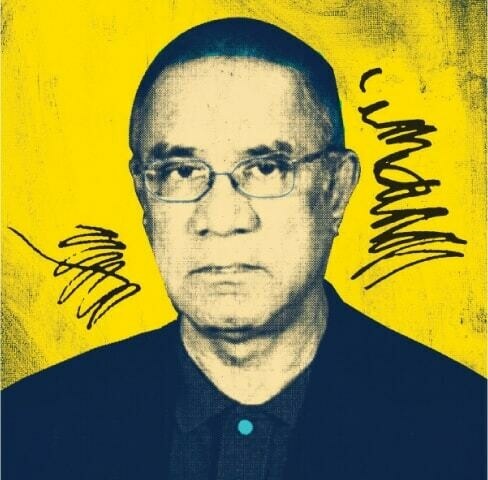More than once, and in ways more than one, Ghalib has spoken of what may be called the paradox of manifestation (nazzaara/jalva).
This paradox, for good historical and doctrinal reasons, is practically a trope in classical Persian and Urdu poetry, from Rumi and Hafiz to Faiz and Ahmad Faraz — a trope drizzling forth in all likelihood from the Sufis. But what exactly is this particular paradox? It simply denotes the enriching phenomenon that manifestation does not always reveal — rather, it hides; in other words, manifestation at times becomes a veil (hijab/niqab). And here lies the paradox.
Shifting the key to the concrete and historical, and this is my main thrust here, one observes that the paradox we are talking about ironically applies to Ghalib qua historical personage. Indeed, his audiences are so lost in the glare of the creative intricacies of his poetry that, in their wonderment, they are hardly able to pay attention to his political and cultural role in the high colonial times in South Asia.
One forgets that, beyond literary history, Ghalib has played a decisive role in Indo-Muslim intellectual history with far-reaching consequences — reaching so far that it ripples through in the ideals and aspirations even of contemporary South Asian Muslim society.
Ghalib lost his father Abdullah Beg when he was only a five-year-old child. Then, his guardian uncle Nasrullah Beg — someone who was in the good books of the colonial rulers — died in 1806 when he was not quite nine.
Upon the death of Nasrullah Beg, Lord Lake through a formal decree granted his dependents, and that included Ghalib, a pension of Rs10,000. This was to be paid from the revenues of the estate of the deceased’s father-in-law Ahmad Baksh Khan, the nawab of Firozepur-Jhirka and Loharo. But then, this grant was drastically reduced by the nawab.
Ghalib felt wronged. The paltry sum he received was certainly not enough for him, especially given his supremely indulgent and extravagant lifestyle. He considered it a violation of Lord Lake’s decree. When negotiations failed, he decided to proceed legally against the nawab, a case in which he was engaged for some 16 long years.
Beyond literary history, Ghalib has played a decisive role in Indo-Muslim intellectual history with far-reaching consequences — reaching so far that it ripples through in the ideals and aspirations even of contemporary South Asian Muslim society.’
The pension case took Ghalib here and there, meeting colonial officials, beseeching them and appealing to them. And eventually he traveled to Calcutta (now Kolkata), the capital of the British dominions, to plead his case before the council of the Governor-General.
Ghalib’s visit to Calcutta proved to be a watershed.
He was deeply impressed by the administrative structures of this British metropolis and the cultured lifestyle of its colonial inhabitants — but, above all, he was enraptured and utterly fascinated by the Western technology he encountered — from street lights to the telegraph, and from wines and fruits to steam engines, steamships and railways. He called British technological innovations “miracles of the times.”
Concerning his pension case, Ghalib returned to Delhi frustrated, but Western technology, along with British lifestyle, left a deep mark on him. He wrote a short, deeply felt ode to the city, singing songs of praise for its elegant pretty ladies, its pure crystal wines and fresh and sweet fruits, saying in the opening line: “Ah, my friend, when you mention Kalkatta, you shoot an arrow to my heart!”
One may say that Calcutta “converted” Ghalib. His nostalgia and romance for the Mughal past now evaporated; now he was a “forward-looking” Muslim thinker strongly supporting modern education, science and technology in particular.
And it is Ghalib who converted Sir Sayyid Ahmad Khan. Indeed, one can make a strong case that the Sir Sayyid, as he is held in Pakistan’s national consciousness, is a construct of Ghalib. In his young days, this reformer was interested in his Mughal past and, among other things, he produced a simplified edition of Abu’l Fazl’s Aaeen-i-Akbari (Akbar’s Administration). But then, the pre-knighthood scholar made a grave error by soliciting Ghalib to write an introductory endorsement for the volume.
Ghalib, instead, wrote a long Persian poem, in which he vehemently and mercilessly condemned the young writer for undertaking this “dead-worship” —
Shame on him for undertaking this disgraceful project
This book only talks about dead and abandoned temples …
Open your eyes to the new world order
Look at the British and at their ways
To their credit is the construction of rules of governance
No one can govern better than the British …
What magic spell have they cast on water
That here steam takes the boat across water
And there it makes the engine gallop through open fields and deserts …
Go to London and see this glowing garden
Lit up without oil lamps at night …
Worship of the dead is not a felicitous task!
But there is a dark side to it too — post-Calcutta Ghalib began to side in earnest with the colonial rulers, and — I say this with a heavy heart — he now despised his fellow Indians, as we witness plentifully in the Dastanbu, his veiled account of the 1857 rebellion, a blood-drenched rebellion he called “rastakez-i-beja” [senseless insurrection].
The columnist is Executive Academic Adviser to the Chairman of the Board of Governors at the University of Lahore and Adjunct Professor at IBA Karachi. The partial translation of Ghalib’s Persian poem is by the columnist.
Published in Dawn, Books & Authors, June 29th, 2025
